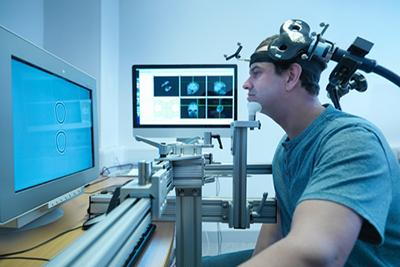The Evolution of TMS: Advancements in Treating Depression and Beyond

- posted: Dec. 15, 2023
The Evolution of TMS: Advancements in Treating Depression and Beyond
The physical principles of Transcranial Magnetic Stimulation or TMS have been in use for over 100 years, but the discovery of its therapeutic benefits in the treatment of depression is much more recent. Dr. Matthew Barnas and Dr. Deborah Ocasio at Pelorus TMS, offer transcranial magnetic stimulation treatment to help with depression and other mental health disorders. They proudly serve residents in Raritan, Cedar Knolls, and Springfield, NJ, with convenient office locations in Raritan, and Cedar Knolls, NJ.
What You Need To Know About TMS
TMS properties were first discovered by a physicist named Michael Faraday in 1881. He discovered that a magnetic field could be produced with pulsed electric current. He used a coil that was held above a person’s head, Faraday determined that the coil could produce an electric current in the brain of the person, targeted at specific neurons. The stimulation produced physiological and behavioral effects in the person.
Over the next 100 years, TMS has progressed to the current system used today. A scientist named Anthony Barker used a Faraday coil and placed it on the area of the scalp controlling motor function. Barker found that he could move the right hand of the person, using only electromagnetic pulses, which communicated with specific neurons.
Barker’s TMS system was first presented in 1985. Safety measures and protocols in the treatment of depression using TMS were published in 1998. Currently, there are over 90 completed clinical trials in the use of TMS. The clinical trials demonstrated the effectiveness of repeated TMS sessions in the treatment of major depressive disorder.
The NeuroStar TMS device was approved by the FDA in 2008, for use in the treatment of depression. FDA guidelines recommend that the TMS device should be used daily for 4-6 weeks, for cases of depression that aren’t helped with medication. Research and testing are ongoing in the treatment of depression and other mental health disorders using the TMS device. Conditions which may be helped with TMS include:
- Migraines
- Anxiety disorder
- Bipolar disorder
- Alzheimer’s disease
- Memory impairment
- Stroke rehabilitation
Want To Know More?
To learn more about transcranial magnetic stimulation or TMS and how it can help with depression, talk with the experts. Call Dr. Matthew Barnas and Dr. Deborah Ocasio at Pelorus TMS. You can reach them in either of their locations in Raritan, or Cedar Knolls, NJ, by calling (973) 295-6335, so call today.
Contact Us
Our Locations
Cedar Knolls Location
14 Ridgedale Ave Suite 103
Cedar Knolls, NJ 07927, US
Hours of Operation
9:00 am - 5:00 pm
9:00 am - 5:00 pm
9:00 am - 5:00 pm
9:00 am - 5:00 pm
9:00 am - 5:00 pm
Closed
Closed

